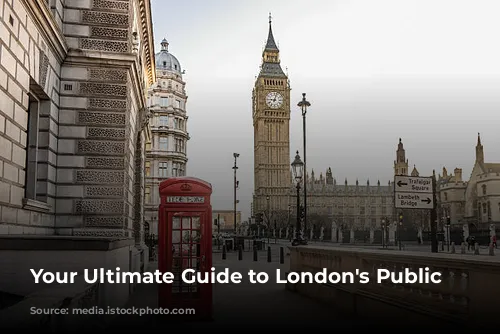London is a city brimming with life, and its unique blend of history and modern culture is reflected in its calendar of public holidays. Every year, eight special days offer a chance to relax, celebrate, and explore the city in a different light.

When and Why: London’s Bank Holidays Explained
London’s public holidays are a fascinating mix of religious and historical observances. These days are officially designated “bank holidays” because banks and most businesses are closed, giving everyone a well-deserved break.
But here’s a key difference:
- Bank holidays: These are the eight officially recognized days off, with most businesses closed.
- Public holidays: These are days observed by the public, but banks may remain open.
Let’s delve into the history: The Bank Holidays Act of 1871 established the concept of bank holidays in the United Kingdom, ensuring workers had designated rest days. However, Christmas and Good Friday were declared “rest days” but not bank holidays. Later, the Banking and Financial Dealings Act officially designated six bank holidays and two public holidays in the UK.

London’s Public Holiday Calendar: Marking the Seasons and Special Events
Here’s a rundown of London’s most important public holidays, each with its unique charm and significance:
New Year’s Day (January 1st): A fresh start, marking the beginning of a new year, full of promise and hope.
Good Friday: A somber day of remembrance, commemorating the crucifixion of Jesus Christ. It’s a public holiday in London, but not a bank holiday.
Easter Monday: A joyful occasion, celebrating the resurrection of Jesus Christ. It’s a chance to enjoy springtime festivities.
Early May Bank Holiday (First Monday of May): A welcome break in the early spring, a time to celebrate the blossoming of nature and the promise of warmer days ahead.
Spring Bank Holiday (End of May): A celebration of the vibrant colors and fresh energy of spring.
Summer Bank Holiday (End of August): A final hurrah for summer, marking the end of the long, warm days and the anticipation of the autumn season.
Christmas Day (December 25th): A magical day of celebration, filled with family, friends, and the spirit of giving.
Boxing Day (December 26th): A festive day of giving and sharing, often enjoyed with family and loved ones.

Beyond Bank Holidays: Other Observances in London
While not official public holidays, many events and observances enrich London’s cultural tapestry, offering unique opportunities to experience the city’s spirit.
Valentine’s Day (February 14th): A day for love, romance, and expressing affection. London is adorned with hearts and flowers, making it a truly enchanting experience.
St. David’s Day (March 1st): A celebration of Wales’ patron saint, a time to honor Welsh culture and heritage.
St. Patrick’s Day (March 17th): A lively celebration of Irish culture, with parades, traditional music, and plenty of green.
Mothering Sunday (Variable Date in March): A special day to show appreciation for mothers and the nurturing spirit they embody.
St. George’s Day (April 23rd): Celebrating England’s patron saint, it’s a chance to embrace English traditions and heritage.
Father’s Day (Second Sunday in June): A time to honor fathers and the significant role they play in our lives.
Halloween (October 31st): A spooky celebration of the supernatural, filled with costumes, trick-or-treating, and a touch of mystery.
Bonfire Night (November 5th): A night of fireworks and bonfires, commemorating the foiling of the Gunpowder Plot in 1605.
St. Andrew’s Day (November 30th): A celebration of Scotland’s patron saint, a day to reflect on Scottish history and culture.
London is a city that embraces its diverse heritage, celebrating its vibrant culture through both official and unofficial holidays. Each observance offers a unique opportunity to experience the heart and soul of this iconic city. So, whether you’re looking for a quiet day of reflection or a chance to join in the festivities, London’s holidays offer something for everyone.











